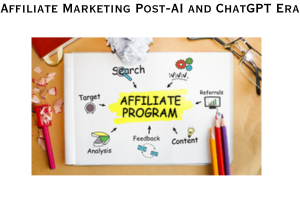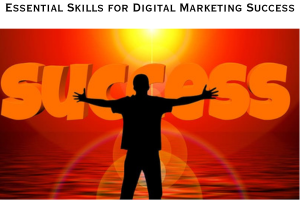Digital Marketing Jobs in India for Newbies: Navigating the Landscape and Landing Your Dream Role
As a new college graduate with a management certification, the digital marketing industry in India holds promising career opportunities. With the country’s rapid digitalization and the increasing demand for online presence, businesses are seeking skilled digital marketers to help them navigate the competitive landscape. In this article, we will explore the digital marketing job market in India, provide tips for newbies to stand out, and guide you on how to leverage your management certification to secure a rewarding position.
-
- Understanding the Digital Marketing Job Market in India:
The digital marketing industry in India is thriving, offering a plethora of job opportunities across various sectors. Roles such as digital marketing executive, social media manager, content strategist, SEO specialist, and paid advertising analyst are in high demand. To succeed in this competitive market, it’s crucial to stay updated with the latest industry trends, tools, and techniques. Familiarize yourself with the Indian digital ecosystem, local consumer behavior, and popular digital platforms used by businesses in India.
-
- Leveraging Your Management Certification:
Your management certification can give you a competitive edge in the digital marketing job market. Highlight the management skills you acquired during your certification program, such as strategic thinking, project management, analytical abilities, and communication skills. Showcase how these skills can be applied in digital marketing roles to drive business growth and achieve marketing objectives. Emphasize your ability to understand consumer behavior, analyze market trends, and make data-driven decisions.
-
- Gain Practical Experience through Internships or Freelancing:
As a newbie in the field, gaining practical experience is crucial. Consider internships or freelancing opportunities in digital marketing agencies, startups, or established companies. These experiences not only provide hands-on knowledge but also build your professional network and enhance your resume. Showcase your internship projects, campaign results, and achievements to demonstrate your practical understanding of digital marketing concepts and strategies.
-
- Develop a Strong Digital Presence:
In the digital marketing industry, having a strong personal brand and digital presence can greatly benefit your job prospects. Create a professional website or portfolio showcasing your skills, projects, and achievements. Optimize your LinkedIn profile, highlighting your management certification, internships, and relevant skills. Engage in industry-specific discussions and connect with professionals in the digital marketing field. Establish yourself as a thought leader by sharing valuable insights, writing blog posts, or contributing to industry publications.
-
- Stay Updated with Industry Trends and Tools:
Digital marketing is a rapidly evolving field, and it’s essential to stay updated with the latest trends and tools. Attend webinars, workshops, and industry conferences to expand your knowledge. Familiarize yourself with popular digital marketing tools and platforms used in the Indian context, such as Google Ads, Facebook Ads Manager, SEO tools, and social media management platforms. Acquiring certifications in relevant tools and platforms can also enhance your credibility and marketability.
-
- Network and Tap into Professional Communities:
Networking plays a crucial role in landing digital marketing jobs. Join industry-specific communities, both online and offline, to connect with professionals, exchange ideas, and learn from experienced marketers. Participate in digital marketing forums, LinkedIn groups, and local industry events. Engaging with professionals can provide valuable insights, job leads, and mentorship opportunities. Build relationships, showcase your skills, and let your passion for digital marketing shine through.
Conclusion:
As a new college graduate with a management certification, the Indian digital marketing industry offers exciting opportunities for career growth. By understanding the job market, leveraging your management certification, gaining practical experience, developing a strong digital presence, staying updated with industry trends, and networking with professionals, you can position yourself for success in the competitive landscape. Be proactive, persistent, and adaptable as you embark on your journey towards a rewarding digital marketing career in India.









